Projects
Working together with our partners, we have developed technologies to enhance river saving.
Development of the Robo-Collect package (2018-1.1.2-KFI-2018-00034 project funded by the Hungarian National Research, Development and Innovation Office) by Future Plastik Ltd.
"The Robo-Collect package is a complex four-legged solution to tackle the plastic pollution of rivers: 1. Hydrological model to find the best place to remove the pollution. 2. Self-learning camera system is watching the river if the pollution comes. 3. Waste collection boat for the removal of the pollution. 4. Separator to separate recyclable fractions of the waste. "
Website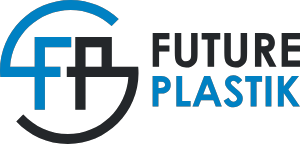
Tid(y)Up
Despite the EU’s advanced waste management and recycling goals, plastic pollution remains a problem in European rivers. The Tid(y)Up project focuses on improving water quality and reducing plastic pollution in the Tisza River while also assessing its impact on the Danube and the Black Sea. Currently, there is a lack of standardized methods and consistent data on river plastic pollution in the Danube Basin, making coordinated action difficult. The project develops integrated actions, provides tools for stakeholders, and promotes long-term cooperation to monitor and reduce pollution. It also conducts research, field trips, and awareness campaigns while offering practical solutions and legislative recommendations to support water authorities in improving water quality.
Website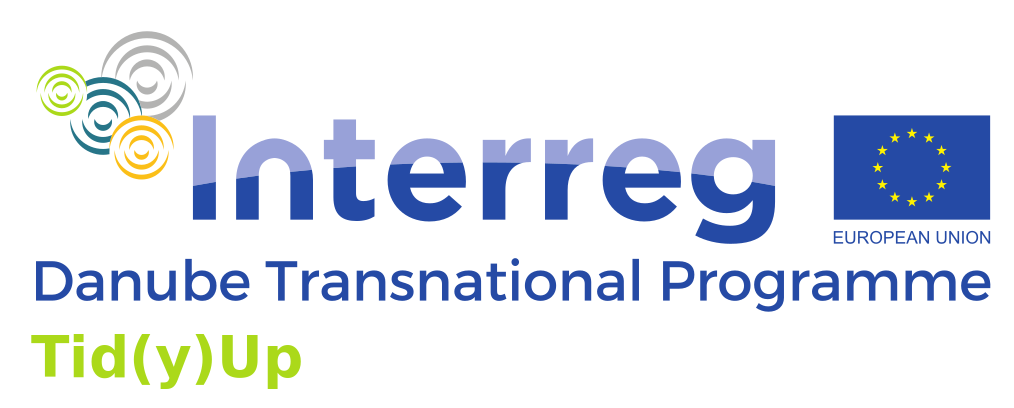
Zero Waste Tisza River
The Zero Waste Tisza River project was launched by Plastic Cup Society and the National Water Directorate General, with funding from The Coca-Cola Foundation between 2019-2023 and aimed to remove plastic waste from the river. Apart from cleanup activities with involvement of employees of Coca-Cola Hungary and volunteers of Plastic Cup, the project allowed Plastic Cup Society to establish its research and development program. Several technological developments contributed to the success of the Zero Waste Tisza River Project, including the GPS-based tracking of plastic pollution, the upcycled riverine litter based plastic kayak and the SWAP, the Safe Water Access Point. The cleanups and the constant operation and development of the first Riversaver Centre next to the Kisköre Water Steps resulted in the removal of more than 100 tonnes of waste from the Tisza river complemented with actions in Ukraine to divert waste from illegal landfills along the river.
Website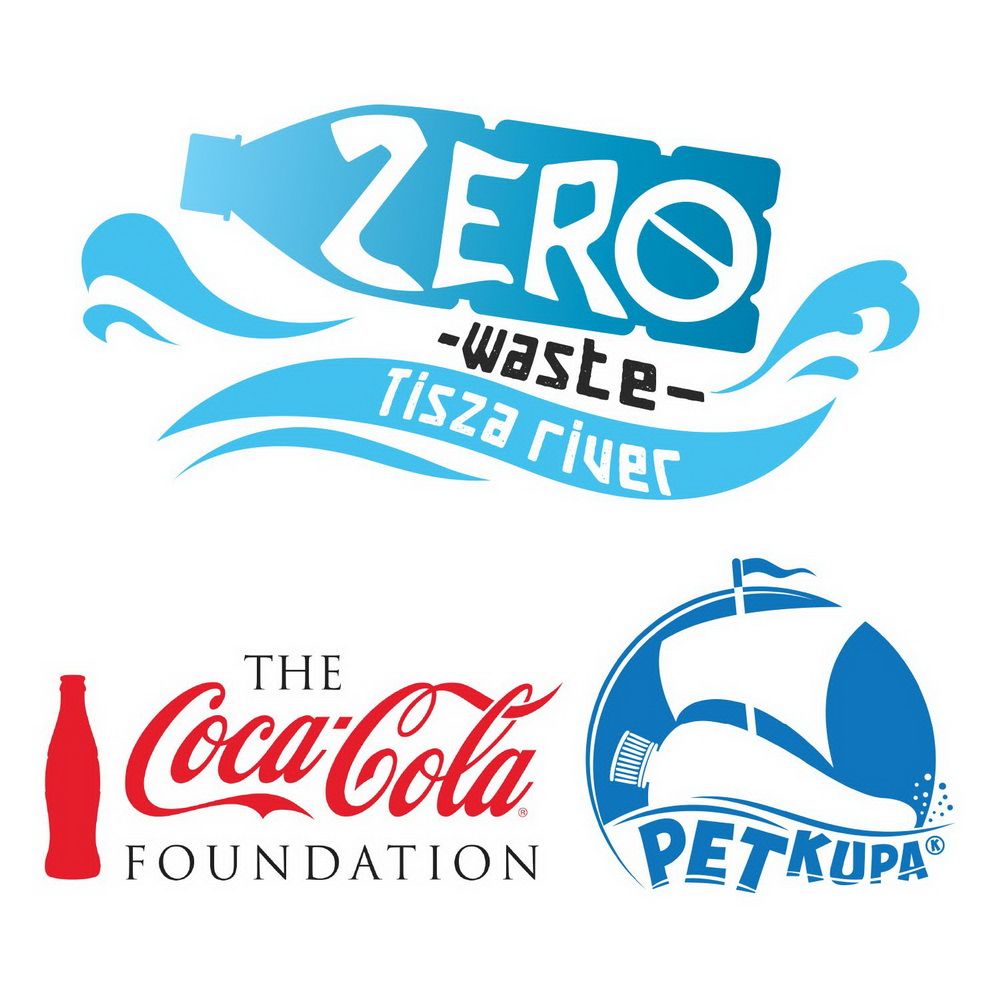
Aquatic Plastic
AQUATIC PLASTIC (AQPLA) is a collaborative initiative aimed at combating riverine plastic pollution in the Danube River Basin. Did you know that 80% of marine litter originates from land-based sources, including rivers? AQPLA’s aim is to provide a thorough database and methodology to map riverine plastic waste, using artificial barriers, such as Hydroelectric Power Plants (HPPs) and implement remote sensing technologies as tools to measure, monitor and divert riverine plastic waste accumulations from nature to landfills. Our consortium, comprised of diverse stakeholders from 10 countries, including ministries, NGOs, universities, and water authorities, aims to identify high-risk waste leakage points and develop innovative solutions for extraction and recycling.
Website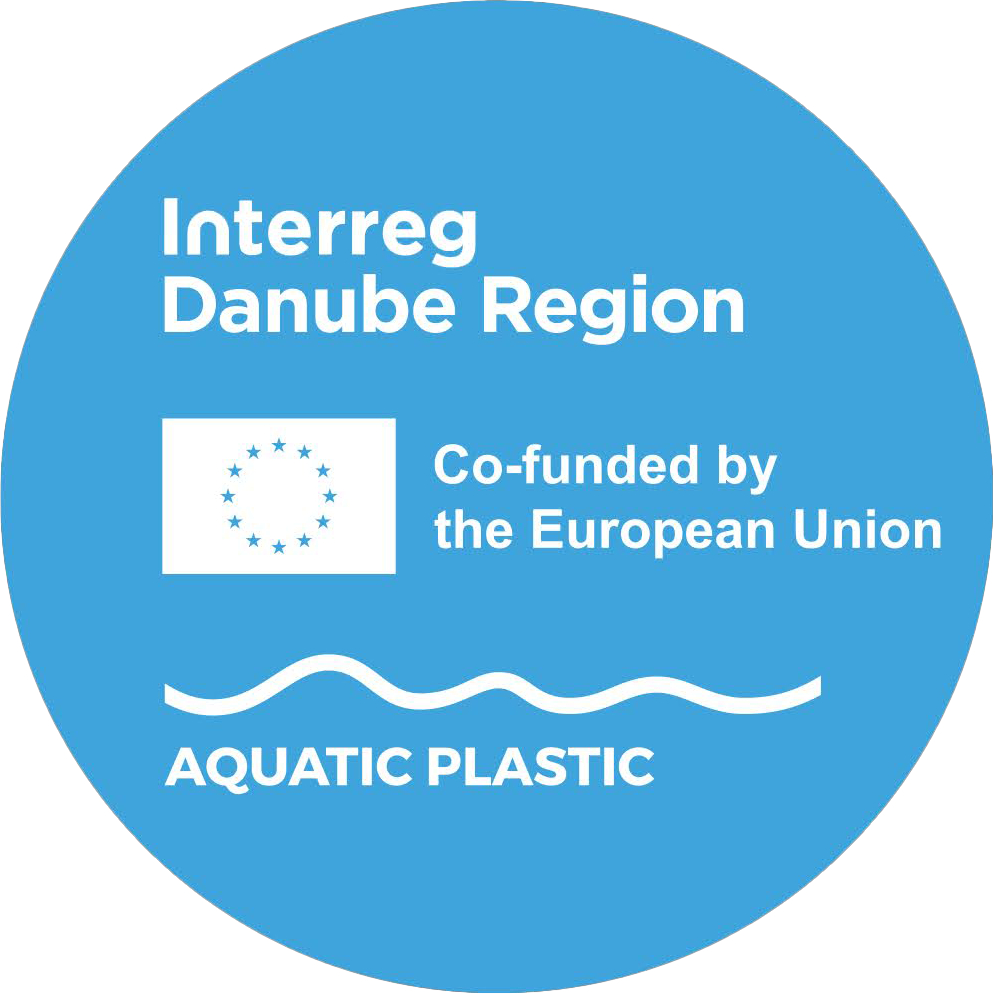
The Sustainable Development and Technologies National Programme of the Hungarian Academy of Sciences by Budapest University of Technology and Economics
The project is based on two pillars. On the one hand, it explores the dynamics of the transport of plastics in watercourses with the aim to understand the environmental effects of pollution and to be able to plan and implement in a well-founded way their targeted reduction in the future. The riverine transport of macroplastics larger than 5 mm is studied in order to better understand the typical sources of pollution, their transport characteristics and trapping locations, and the spatio-temporal dynamics of the transport processes. New developments, intelligent video-based measurement procedures are applied for the study, and carry out extensive field sampling together with hydrological measurements in the selected areas. The second pillar of the research is the lab analysis of the plastics found in the river and the assessment of their reuse possibilities. On the one hand, FT-IR and Raman spectrometry are used to determine the quantitative and qualitative composition of polymers from representative sampling, as well as the degree of degradation of polymers due to environmental effects. Accelerated aging tests are used to model and compare the degradation of traditional and biodegradable plastics as potential substitutes, with particular attention to the size and amount of microplastics produced during degradation. Building on a recent development, the project is further developing new uses for plastic waste.
Website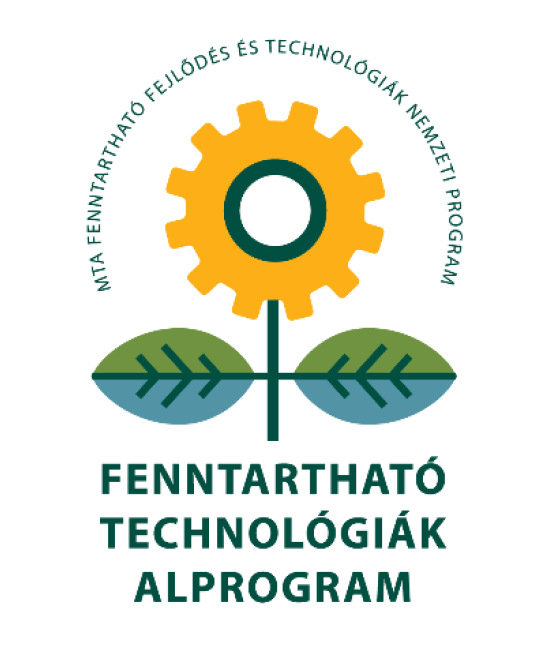
DALIA Danube Lighthouse
The Danube river basin is home to nearly 80 million people and is shared by 19 European countries, indicating the need to address the challenges of the river basin on international level. Many water quality and water management challenges exist, and in this context the EU-funded DALIA project brings together 22 expert organisations from eight EU and associated countries to demonstrate good practices that properly manage this complex and fragile ecosystem. Nine such good practices, pilots, will be demonstrated, further developed and replicated during the project. The Plastic Cup Association, as a project partner, is the host of the Bodrog River pilot site, where it will build on the knowledge accumulated over the history of the Plastic Cup to develop replicable, European-level good practice to tackle plastic pollution in rivers, i.e. the Riversaver Replication Package. DALIA will contribute to the EU Water Framework Directive and the EU's "Restore our Ocean and Waters" mission, and thus strengthen cooperation between the different projects operating in parallel in the Horizon Lighthouse Mission programme. The DALIA project is supported by the EU Horizon Framework Programme through a grant agreement 101094070.
Website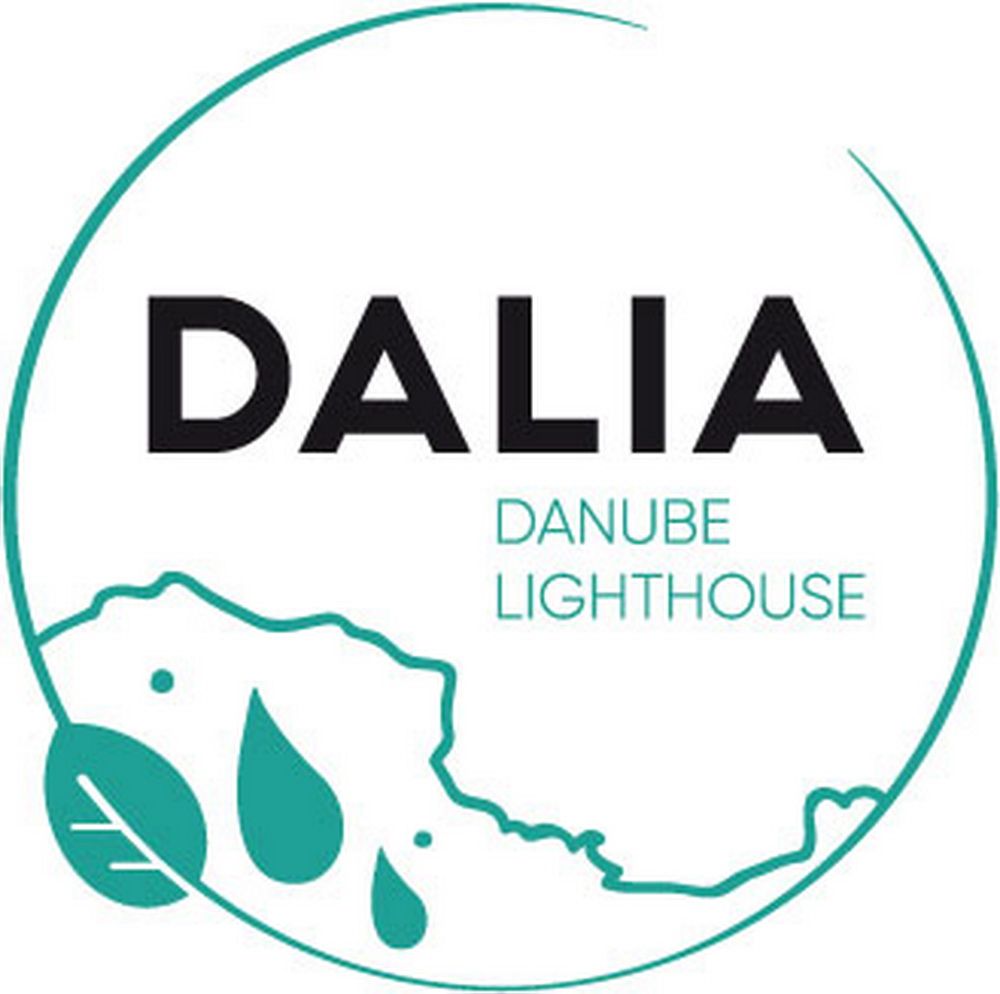
Erasmus 5in1
The project created a constructive cooperation between the countries sharing the Tisza river basin - Ukraine, Romania, Hungary, Slovakia and Serbia. The project yielded effective education and training activities, building on several good practices with mobilising young, often disadvantaged schoolchildren (aged 6-18) living in polluted areas and to support teachers working with them by providing them with missing professional skills and educational materials. The aim of the 5in1 project was to raise awareness of the waste that is entering the environment, the possibilities for its removal and recycling. It aims to develop key competences through experiential and creative activities and to contribute to the start of organised waste management in the Tisza basin. The objective was also to achieve visible and long-term sustainable improvements in each partner country, e.g. by cleaning up the adopted bank of the river, in a well-defined section.
Website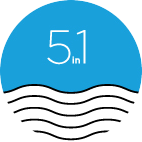
GoBodrog
"The #Gobodrog project is a grassroots initiative aimed at improving flood protection quality in the Bodrog floodplain through civil cooperation. The GoBodrog project assists water management organizations by stopping the plastic flood in the upper Bodrog and its tributary, Latorica, thus reducing river waste pollution in the lower floodplains, building on local residents and volunteers. Two new RiverSaver Centers will be established in the Bodrog floodplain in Olaszliszka and on the Latorica floodplain in Beša, serving as intervention centers for volunteers and their equipment involved in river cleaning. A flood warning system will be created on the Bodrog, consisting of three observation posts: software integrated into the camera system continuously analyzes the amount of transported waste and sends alerts when on-site intervention is necessary. To increase river cleaning efficiency, waste collection grabbers will be placed along the Hungarian and Slovak sections of the Bodrog, continuously collecting incoming waste. River cleanup boats, loading and transport machines, vehicles, and protective equipment will be purchased to relocate and empty the grabbers and organize further actions. Project partners will reduce plastic pollution in the Bodrog floodplain by involving local communities and cooperating with authorities and civil organizations. To achieve this long-term, several awareness-raising programs will be organized, with particular attention to young people. To actively involve local residents, two large-scale river cleanup events will be held within the project, with hundreds of participants: one in the upper part in Slovakia and one in Hungary."
Website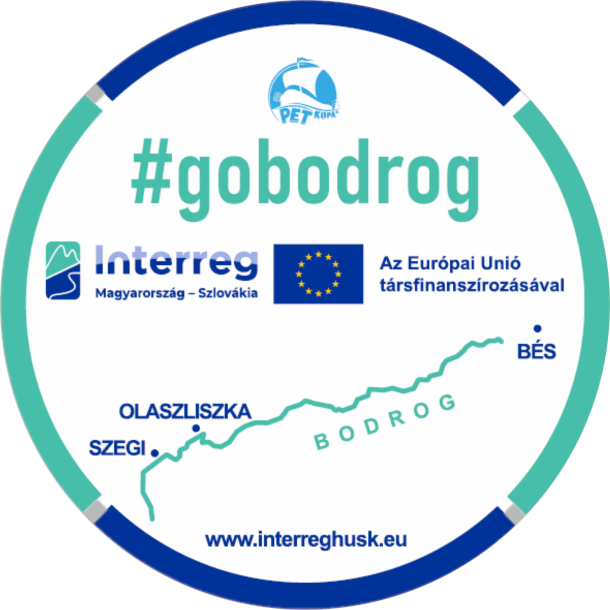
Erasmus FMIP
"The main goals of the River Lit(t)eracy project is to increase students' awareness and understanding of an important environmental issue: the transnational riverine plastic pollution. In accordance with the EU's climate and sustainability goals the project aims to develop students' skills and knowledge in the ecological, economical and cultural significance of rivers; the formation and behavior of riverine and marine litter; and the sustainable use and recycling of plastics. In the River Lit(t)eracy project partners create and develop educational materials in 6 languages. To clean rivers from plastics we encourage the active participation of schools by creating suitcase-sized sets of portable educational tools and invite them to join the network of Riversaver Schools where students can take part in river cleanup actions; citizen science activities; collection of household and riverine litter; river adoption and the innovative recycling of various types of plastics. The River Lit(t)eracy project increases awareness and understanding of riverine litter pollution; encourages active participation in order to carry out river cleanups; develops skills and knowledge necessary to comprehend the connections between rivers, and oceans; fosters positive attitudes and values to prevent future pollution events. Following EU and UN directives (e.g. Ocean Literacy), the main result of this project is a significant increase in the number of River Literate citizens."
Website